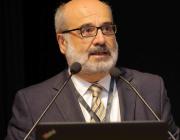Citation:
Abstract:
In Southeastern Europe, archaeology extends beyond its traditional role as a scientific discipline, assuming a unique function as a medium for shaping alternative knowledge systems. This article explores the complex relationship between archaeology and the crafting of ancestral narratives in the region, illuminating how archaeological interpretations are employed to invent and sustain cultural identities.
By analysing a range of archaeological case studies across the Balkans, this study investigates how archaeological evidence is appropriated and reshaped to advance ideological agendas, frequently diverging from established academic consensus. It contends that in Southeastern Europe, archaeology functions as a powerful instrument for legitimising territorial claims and cultural dominance, promoting narratives of continuity and primordial origins that deeply resonate within the collective psyche. Through the selective amplification of certain aspects of the past while marginalising others, archaeological discourse facilitates the construction of mythologised origin stories that reinforce nationalist ideologies and perpetuate historical tensions.

